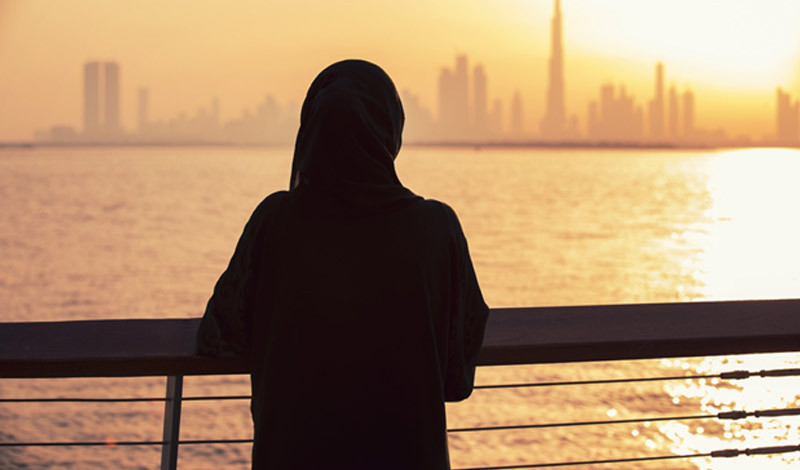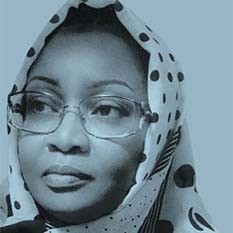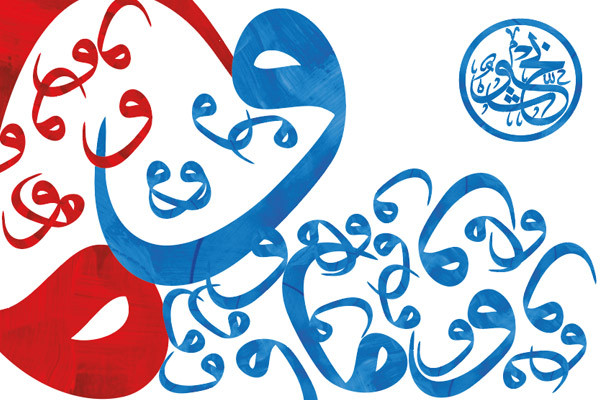Admiring the Path of Emirati Women
Western media tend to overlook that the Emirati woman has managed over recent years to achieve on par with women in many developed countries, and may have surpassed them in some instances. They did this without dramatized calls for womens rights or accusations of sexism.

- by Dr. Sumaya Adam Eisa ,
- Monday, 11th January, 2010
Whilst many womens rights societies around the Arab world invoked anti-oppression slogans, Emirati women actively took advantage of the many available opportunities to elevate themselves and their country. The UAE has managed to empower Emirati women by providing them social support in pursuing these many opportunities. They managed to attain higher educational goals and integrate in many fields, combining roles in both the family and society.
According to a report by the Arab Thought Foundation regarding The cultural development in Arab countries, the UAE scored highest in level of female university education achieved. Primary education is compulsory and education is free at all levels within the country. Female enrollment reached 76% in UAE, the highest in Arab countries, followed by Bahrain 68%, Lebanon 62%, Egypt 45%, Saudi Arabia 49% and Yemen 25%. Furthermore, a report issued by Price Waterhouse Coopers and discussed at the Arab Youth Forum in Dubai showed that the UAE comes in first worldwide in higher education for women.
However, the workplace does not yet match these exceptional figures for women in education. Despite the high percentage of the educated UAE females, which is higher than the male percentage, and despite the equal treatment stipulated in the UAE laws for men and women which also respect womens special circumstances, statistics indicate a big gap between the two genders in the work place. Traditions seem to deny women work of certain types.
The country has sought to overcome traditions by opening participation for women within the military service, as well as the police force, and taking other initiatives. The UAE has also joined most international agreements that provide womens rights protection. UAE law allows women to organize civic society associations. These now exceed 20social, cultural and religious groups that the General Women Union and Family Development Foundation and other women-related societies head. Emirati women were the first in the Gulf to reach a parliamentary position. They make up 23% of the Federal National Council compared to 19% in the British parliament and 22% in the US Congress. Currently, the UAE also has 4 women ministers and two ambassadors, a judge, and a marriage registrar.
Moreover, Emirati women have also managed to secure a comfortable position within the financial sector with the establishment of the Business Women Council which includes approximately 12,000 ladies running 11,000 investment projects rounding up a total investment figure of approximately twelve billion Dirhams.
Emirati women have challenged social pressure and tradition. They have also overcome the inferiority syndrome that women suffer in many Arab societies. They now build on these achievements by trying to undo the Wests stereotyping of them as second class citizens. Hence one of the objectives from the Annual Arab Women Conference, organized by the Womens Union in Abu Dhabi, is to launch a new media strategy to correct misconceptions about Arab women in the international arena without resorting to marketing and commercializing women in a manner typical in the media. Instead, the campaign shows that what distinguishes the Emirati woman is her strong bond to her national attire; it adds a halo of decorum and dignity to her, imbuing her beauty with a sense of uniqueness. Thus, she embodies the value of proving oneself without compromising ones culture.
UAE efforts to empower women have saved them time that they might have expended on equal rights movements. Many observers miss this point; they dismiss womans participation in the UAE as superficialtoken positions, even leadershipleaving the majority of women oppressed or below a glass ceiling. However, the nature of the changes already in play in the UAE suggests that it will not be long before all Emirati women will benefit from all aspects of social development.
By the end of the Arab Women Conference other Arab women clearly envied the Emirati womens experience which has placed the UAE in a position to spread its experience in the empowerment and development of women who not only enjoy privilege, but also can be a beacon to the women of the world.

Dr. Sumaya Adam Eisa
Researcher, GLOBAL AFFAIRS DEPARTMENT (FORMER)
Read More
Areas of Expertise
- Writing
- Research
- Editing
- Translation
Education
- PhD, Fictional Genre Translaion
- M. A. in Translation & Interpretation, American University of Sharjah, UAE
- B. Sc. In Rural Economics, University of Khartoum, Sudan
Bio
Skilled writer dedicated to work to high standards with extreme commitment to meet deadlines and assure output accuracy. A dynamic experienced translator, translated for the FAO and other regional and international organizations. The Sole Author of Fisheries and Marine Science Dictionary, English-Arabic, the first of its kind in the Arab world. CEO and Founder of TBLT, Khartoum, the Translation Firm which translated the Legislation of the State of Qatar. Has great experience in the fields of scientific research, business and technical writing and translation. In addition to translation of hundreds of economic, administrative and scientific reports and studies. Volunteered in women and other non-governmental associations.

